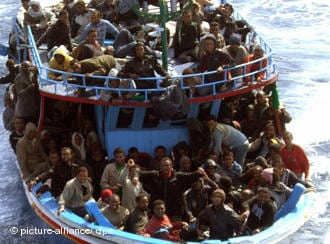The European Dream at the Crossroads
//
=By= Gaither Stewart
[dropcap]T[/dropcap]he dream of a united Europe, in fact, a United States of Europe, stands today at another crossroads. In fact, it always has stood at a crossroads. And what in each crisis has been described as a crossroads has now become more a roundabout or a mix master, a multiple choice puzzle as individual countries pull in the direction most suitable to their national interests. No need to restate the missing elements that Europeanists have long lamented: e.g. a real President with presidential powers, a united foreign policy guided by a strong foreign minister, and a European military force.
Today’s crossroads concerns specifically the Schengen Agreement—which eliminated internal border controls—and the crisis caused by the arrival at the gates of Europe of hundreds of thousands of refugees chiefly from the war torn Middle East, thanks to the meddling of the USA/NATO driven by the smell of oil.
An Italian journalist reporting from Berlin has described the current crisis as a choice between policies of Berlin Chancellor Angela Merkel who has declared Germany will receive a million refugees if necessary and those of Viktor Orban, the extreme right-wing conservative Prime Minister of Hungary who wants no refugees and is building walls to keep them out.
At the same time walls are going up across all of Europe as again lights dim for hopes for the survival of the union that never was.
Last Saturday and Sunday refugees from Syria battled with Macedonian police and border guards, tore down the barbed wire fences and were surging through, destination Deutschland, until Macedonian counterattacks using tear gas and bludgeons beat them back while the masses of refugee children wailed in terror.
Such events are not history. This is happening today, right here in our midst, in modern Europe, the home of state welfare and social justice, in the Europe that has bragged for decades that its union has prevented the former continental wars for 70 years. European Union leaders and supporters, the Europeanists, conveniently forget NATO’s Bosnian wars, the detachment of Kosovo from Serbia and the three months long bombing of Serbia and its capital, Belgrade.
The refugee crisis exposes the fragility of this Europe and the ease with which Europeans forget that the Germans French, Spanish, Italians and English have spent all those centuries you study in “European History” classes killing each other. It shows the illusion of Italians who were once so proud they were not racists; there were relatively few foreigners in Italy. Now that refugees count in the millions, Italians have learned that they too are racists. The same in most other countries.
This is happening in what little remains of the European Union, in which the so-called Euro-skeptics already are, or soon will be, in the majority. Ironically, today, a firm anti-European platform (that is, anti-European Union), is a guarantee for emerging populist parties to garner electoral victories. European individuals, political parties, national governments and political groups in the European Parliament and EU Council today must decide with a great Yes or a Great No to the idea of Europe.
This is an enigma, a terrible enigma why the idea of a union of European peoples has proven to be impossible to realize, even in its present limited form. Maybe the European Union has always been more dream than reality. A poll in the United Kingdom showed that 51% favor leaving the EU; major pockets in other countries favor abandoning the EU as it is today. The impression is that in general Euro-skepticism is growing steadily while nothing on the horizon holds the promise of a change in direction.
Some suggest suspending the Schengen Accords, that is, the free movement of people within the European Union member states (and this approval of the erection of border walls and fences) until the refugee crisis ends. It requires very little realism to understand that the flow of refugees from the Middle East, North and sub-Sahara Africa, Asia will not end as long as the USA and its big-four oil companies continue their attack on the world.
 Senior Editor Gaither Stewart, based in Rome, serves—inter alia—as our European correspondent. A veteran journalist and essayist on a broad palette of topics from culture to history and politics, he is also the author of the Europe Trilogy, celebrated spy thrillers whose latest volume, Time of Exile, was recently published by Punto Press.
Senior Editor Gaither Stewart, based in Rome, serves—inter alia—as our European correspondent. A veteran journalist and essayist on a broad palette of topics from culture to history and politics, he is also the author of the Europe Trilogy, celebrated spy thrillers whose latest volume, Time of Exile, was recently published by Punto Press.
Note to Commenters
Due to severe hacking attacks in the recent past that brought our site down for up to 11 days with considerable loss of circulation, we exercise extreme caution in the comments we publish, as the comment box has been one of the main arteries to inject malicious code. Because of that comments may not appear immediately, but rest assured that if you are a legitimate commenter your opinion will be published within 24 hours. If your comment fails to appear, and you wish to reach us directly, send us a mail at: editor@greanvillepost.com
We apologize for this inconvenience.
 Nauseated by the
Nauseated by the
vile corporate media?
Had enough of their lies, escapism,
omissions and relentless manipulation?
Send a donation to
The Greanville Post–or
But be sure to support YOUR media.
If you don’t, who will?
